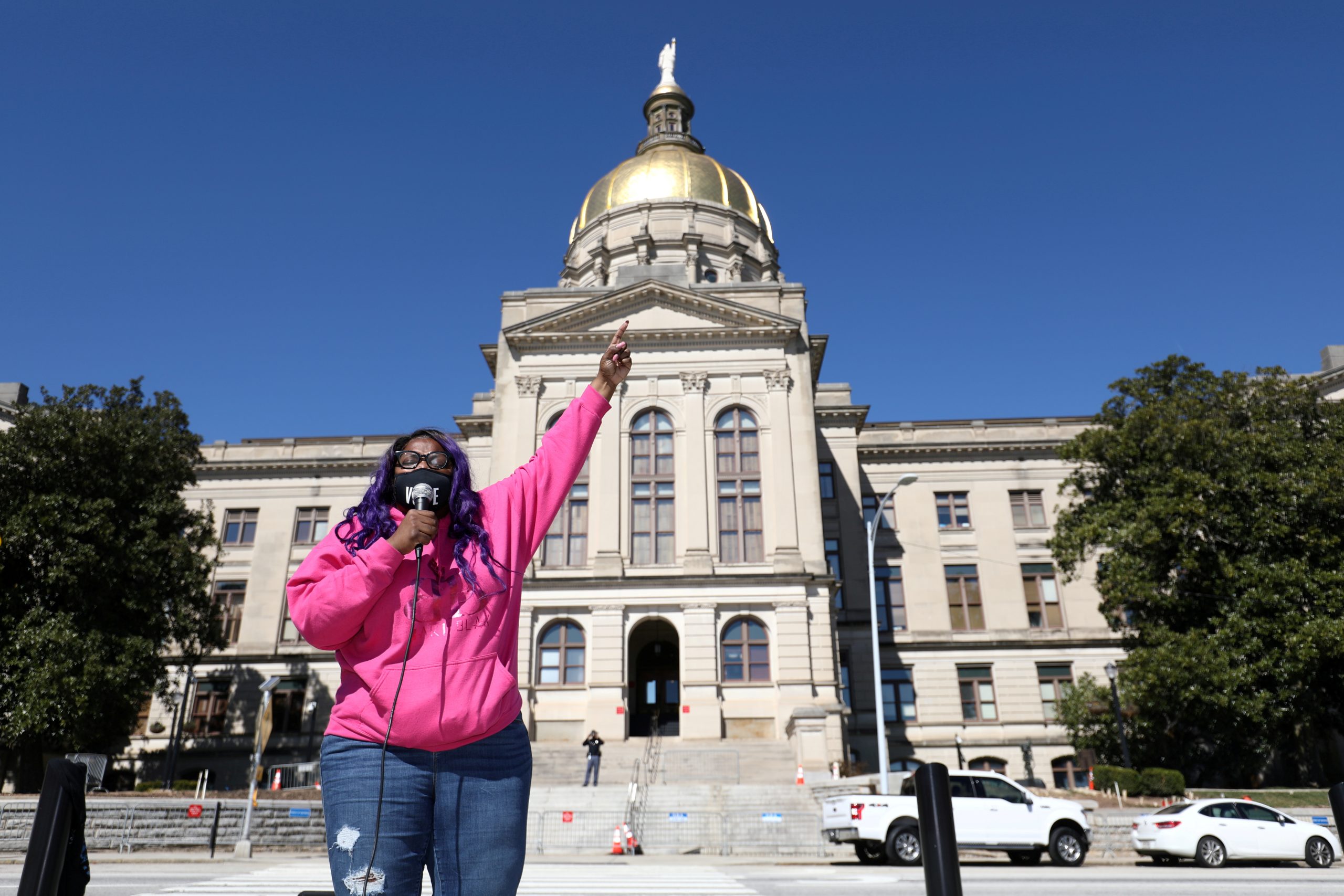Georgia on Thursday enacted broad voting restrictions championed by Republicans that activists said aimed to curtail the influence of Black voters who were instrumental in state elections that helped Democrats win the White House and narrow control of the U.S. Senate.
As soon as Republican Governor Brian Kemp signed the law, voting rights activists vowed to challenge it. The provisions add a new ID requirement for absentee ballots and limit ballot drop boxes.
Opponents of the measure decried it as among the country’s most damaging attempts to limit access to the ballot box, and said it was designed to reduce the influence of Black voters.
Kemp said he expected outrage from the political left and that he offered no apology for “taking another step to making our elections fair and secure.”
He alluded to the 2020 presidential race, which prompted widespread but unsubstantiated claims of election fraud from Republicans after former President Donald Trump lost to President Joe Biden, a Democrat.
“There’s no doubt there were many alarming issues with how the election was handled, and those problems led to a crisis of confidence in the ballot box here in Georgia,” Kemp said.
The Georgia legislation is one of more than 250 bills Republicans have filed proposing new voting limits across the country since Trump’s loss in November. It passed both the state House of Representatives and Senate on Thursday afternoon; no Democratic lawmakers voted for the measure.
Asked about Republican legislators’ efforts to restrict voting access throughout the United States, Biden on Thursday called such measures “un-American.”
The Georgia law will make it a misdemeanor crime to give food or drinks to voters waiting in long lines. It also will set up a fraud hotline, forbid local county elections offices from taking breaks while counting ballots and shorten the runoff election cycle from nine weeks to four weeks. It will allow the state election board the power to replace local county election boards and permit challenges to voting eligibility.
Early versions of the legislation sought to limit Sunday voting, which would have curtailed traditional “Souls to the Polls” voter turnout programs popular in Black churches. Those days were restored after Democrats pushed back, and additional Saturday voting days also were included – provisions Republicans cited as examples of the law making voting more accessible.
But Andrea Young, executive director of the American Civil Liberties Union of Georgia, said the law “attacks absentee voting, criminalizes giving Georgians a drink of water to their neighbors (and) allows state takeover of county elections.”
On Thursday, the ACLU and Georgia’s state NAACP said they would consider every legal option to fight the law.
Trump battled with Republican state leaders and elections officials in Georgia for weeks after his narrow defeat, making baseless claims of election fraud that were disproved by a hand and machine recount and rejected by the courts and investigators.
On Monday, Trump endorsed a challenger looking to defeat Georgia Secretary of State Brad Raffensperger in the 2022 Republican primary.
(Reporting by Rich McKay in Atlanta; Editing by Colleen Jenkins, Jonathan Oatis, Bill Berkrot and Cynthia Osterman)

























 Continue with Google
Continue with Google